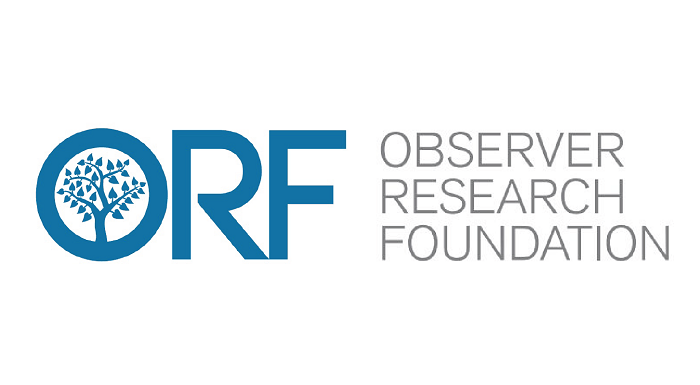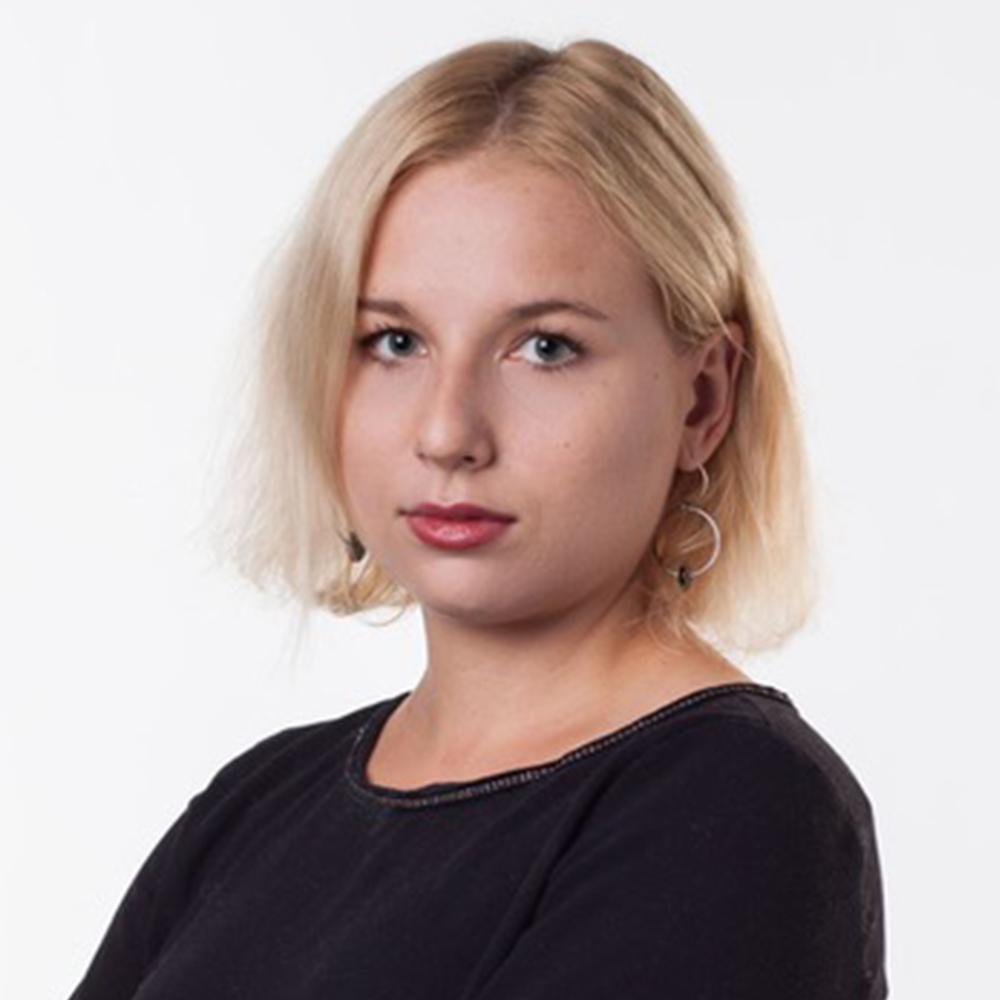
We would like to inform, that Observer Research Foundation has published article of Patrycja Pendrakowska – the Boym Institute Analyst and President of the Board.
Patrycja Pendrakowska discussed political and economic situation during the COVID-19 pandemic.
You can read the article here: [LINK]

Patrycja Pendrakowska Founder and the vice president of the Boym Institute, and analyst of China's foreign policy and economy. On behalf of the Institute, she works on the EU-ASEAN relations within the EANGAGE project coordinated by KAS Singapore and on the Betzavta method with the Adam Institute for Peace and Democracy in Jerusalem. She is one of the founding members of the board at WICCI's India-EU Business council based in Mumbai and coordinated the Transcultural Research Group on the Belt and Road Initiative organised by the Leadership Excellence Institute Zeppelin. Ms Pendrakowska is a PhD candidate at the Humboldt University in Berlin, where she researches political philosophy in China. She graduated from the University of Warsaw with a BA in Sinology, Sociology and Philosophy, and holds two master's degrees in Financial Law, as well as Ethnography and Cultural Anthropology from the University of Warsaw.
czytaj więcej
We would like to inform, that Observer Research Foundation has published article of Patrycja Pendrakowska - the Boym Institute Analyst and President of the Board.
Patrycja PendrakowskaWomen’s liberation in China: interview with prof. Wu Lijuan
Interview of Ewelina Horoszkiewicz with prof. Wu Lijuan - Associate Professor at the Department of Sociology at Peking University. Her research concentrates on the gender issues and social changes brought about by globalization. She wrote a book “Job Placements and Job Shifts in China: The Effects of Education, Family Background and Gender”.
Ewelina HoroszkiewiczRoman Catholic cemetery in Harbin (1903-1958)
First burials of Catholics, mostly Poles but also other Non-Orthodox believers took place in future Harbin in the so called small „old” or later Pokrovskoe Orthodox cemetery in the future European New Town quarter and small graveyards at the military and civilian hospitals of Chinese Eastern Railway at the turn of XIX and XX century.
Jerzy Czajewski“Green growth” may well be more of the same
Witnessing the recent flurry of political activity amid the accelerating environmental emergency, from the Green New Deal to the UN climate summits to European political initiatives, one could be forgiven for thinking that things are finally moving forward.
Dawid JuraszekWe would like to inform, that Observer Research Foundation has published article of Patrycja Pendrakowska - the Boym Institute Analyst and President of the Board.
Patrycja PendrakowskaFrom ‘strategic engagement’ to ‘competition’. Interview with William Yu
Ewelina Horoszkiewicz in conversation with Professor William Yu (UCLA) on USA, China and Europe. Professor William Yu is an economist with the UCLA Anderson Forecast and specializes in the economies of Los Angeles and China.
Ewelina HoroszkiewiczTime for a new normal – enhancing Europe’s military profile in the Indo-Pacific in 2025
2024 witnessed a notable stepping up of Europe’s military profile in the Indo-Pacific. Building on these developments, 2025 should be a year of continuation, bringing even more defence engagement of European states with their Indo-Pacific partners.
Jakub WitczakIndia, China and the Shades of Grey
"We are at an inflection point in this century. Many of our traditional arrangements are failing. To achieve stability in this century we need to discover new solutions" - Interview with Samir Saran - Senior Fellow and Vice President at the Observer Research Foundation
Krzysztof ZalewskiA Story of Victory? The 30th Anniversary of Kazakh Statehood and Challenges for the Future.
On 25 May 2021, the Boym Institute, in cooperation with the Embassy of the Republic of Kazakhstan, organised an international debate with former Polish President Aleksander Kwaśniewski (1995-2005).
Lessons for China and Taiwan from the war in Ukraine
The situation of Taiwan and Ukraine is often compared. The logic is simple: a democracy is threatened by a repressive, authoritarian regime making territorial claims and denying it the right to exist.
Paweł BehrendtBook review: “Europe – North Korea. Between Humanitarianism And Business?”
Book review of "Europe – North Korea. Between Humanitarianism And Business?", written by Myung-Kyu Park, Bernhard Seliger, Sung-Jo Park (Eds.) and published by Lit Verlag in 2010.
Nicolas LeviThe Boym Institute message to Chinese policymakers and analysts
The EU-China relations require common perspective on Russia’s invasion on Ukraine
Paths to Asia: Conversations that Inspire
Wojciech Jaworski is the founder of Huqiao Games, a company specializing in bringing PC games to the Chinese market. A graduate of Jagiellonian University and participant in the “Chinese Bridge” program, he is currently working on a new, as yet unannounced project in the gamedev/tech industry.
Patrycja PendrakowskaInvest and cooperate with Serbia or Poland? A dilemma for South Korean companies
This paper explains why Serbia may replace Poland as a strategic outsourcing centre for South Korean companies in Central and Southern Europe.
Nicolas LeviOnline Course: “Educational tools for addressing the effects of war”
The Adam Institute for Democracy and Peace is offering “Betzavta” facilitators, middle school and high school educators, social activists, communal activists and those assisting refugees an online seminar to explore educational issues related to wartime.
Coronavirus (COVID-19) outbreak and emerging contractual claims
With China one of the key players in the global supply chain, supplying major manufacturing companies with commodities, components and final products, the recent emerging outbreak of Coronavirus provides for a number of organizational as well as legal challenges.
Online Course: “Conflict Resolution and Democracy”
The course will be taught via interactive workshops, employing the Adam Institute’s signature “Betzavta – the Adam Institute’s Facilitation Method“, taught by its creator, Dr. Uki Maroshek-Klarman. The award-winning “Betzavta” method is rooted in an empirical approach to civic education, interpersonal communication and conflict resolution.
The Boym Institute message to Indian policymakers and analysts
India’s current position towards the Russian invasion on Ukraine may damage its reputation as a major force of peace in the world
The Global Waste Trade: Unveiling Waste Colonialism in Southeast Asia
Although 19th-century colonialism may seem like a relic of the past, the global community continues to grapple with its modern counterparts, often referred to as neo-colonialism.
Andżelika SerwatkaInternet, cryptocurrencies & blockchains in North Korea
North Korea is considered as a secretive state, but, paradoxically, the country is developing last trend technologies. With prohibitions restricting the flow of money, the country is turning to bitcoin and other cryptocurrencies to finance their programs, instead of coming under new pressure.
Nicolas LeviGlobal Gateway 101: A Short Guide to the EU’s Development Initiatives and their Challenges in Asia
The 2010s and 2020s have been marked by intense geopolitical competition, not only in traditional military and economic terms but also in the realm of global development initiatives.
Konrad SzattersBorder conflicts as political tools: the Thailand–Cambodia crisis
The border conflict between Thailand and Cambodia is much more than just a territorial dispute. Rooted in historical ambiguities, it has become a tool for domestic political maneuvering in both countries and a stage for international strategic competition.
Andżelika SerwatkaIndonesia – between religion and democracy
Indonesia is the largest Muslim democracy in the world. Approximately 88% of the population in Indonesia declares Islamic religion, but in spite of this significant dominance, Indonesia is not a religious state.
Anna GrzywaczNavigating tomorrow – the significance of Australia’s navy build-up
Australia has recently announced a plan to build the largest fleet since World War II. This move constitutes another step in Canberra's shift of defence strategy and commitment to adapt to the changing security environment.
Jakub Witczak

